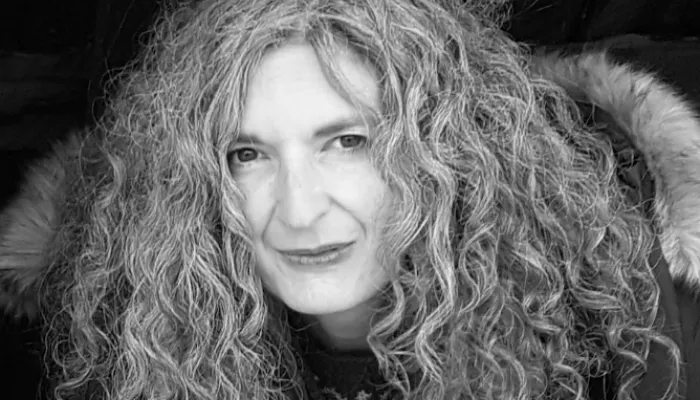Liz Howard
Biography
Liz Howard was born and raised in northern Ontario. She received an Honours Bachelor of Science with High Distinction from the University of Toronto and an MFA in Creative Writing through the University of Guelph. Her first book, Infinite Citizen of the Shaking Tent, won the Griffin Poetry Prize in 2016.
Micro-interview
Yes, I read a staggering amount of poetry. A poem I dearly loved (and still do) is Susan Musgrave’s “A Child’s Garden of Strawberries.”
We all start out writing poems in school, haiku and rhyming couplets, limericks. I continued beyond the classroom. I’ve also (sporadically) kept a journal since I was 7 years old and journaling is a key part of the writing process for me. When I was 8 years old the town newspaper published a poem I wrote as a class assignment, it had something to do with rabbits and foxes in winter, the tension between these two different drives of survival (hiding vs hunting).
I suppose I had some notion of myself as a writer when I was in high school but I never imagined that it would go anywhere. I didn’t write so much, creatively, during university. Once I graduated I picked it up again and began reading at open mic poetry events throughout the city. I submitted to small literary magazines and eventually got a poem or two accepted. By this time, I believe, I was fully in the space of “I am a poet, I have poetry or poetry has me.”
A poet’s job is to compress wide swaths of time and contemplation/emotion/experience into lines that radiate beyond what is present on the page. To make every word count. To be true to the nature of one’s own consciousness.
The inspiration behind “1992” was a vivid memory from my childhood. I woke up one morning in February of 1992 to find that our apartment was freezing. I remember going downstairs into my brother’s room and seeing him standing up in his crib in only a t-shirt and diaper. He was so cold his lips were turning blue. What had happened is the duplex was heated by oil and we had burned through the amount my mother could afford. At the time my mother was raising us on her own on social welfare. The date is significant as the early 90s saw a significant economic recession and there were major cut-backs to social welfare in Canada. This image of my brother has always represented that difficult time for my family, one of the first ways I began to understand that we were poor, different. There is a parallel image, however, of my brother pressing his hand into my mother's painting at the end of the poem. This has always signaled to me a resilience, even a defiance, that has enabled both he and I to survive.
I would choose Alice Notely’s “Jack Would Speak Through the Imperfect Medium of Alice.” I feel she’s really pulling out all the stops here. It is a breathless barrage of information, declaration, and repetition with sonic bombs on almost every line. It would be a really fun poem to learn and perform.


